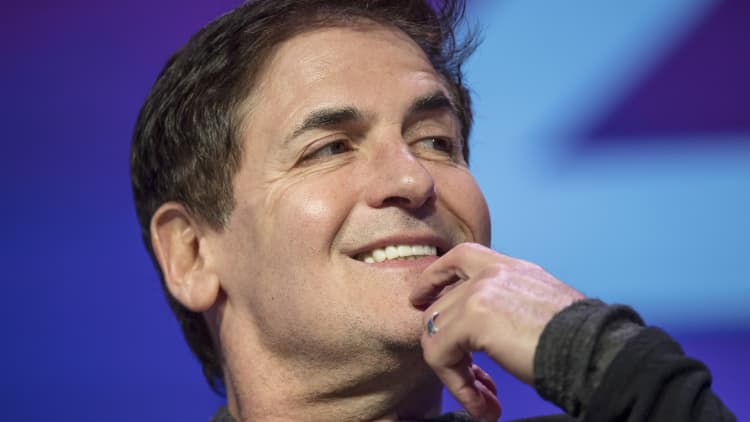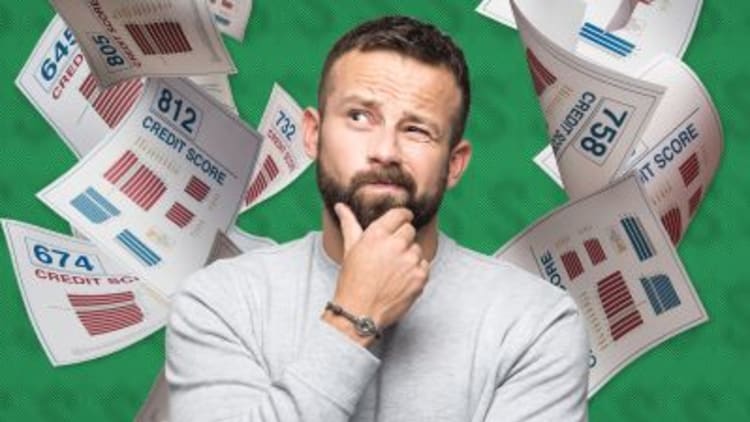A credit score is an important measure of your financial well-being, and it's usually worth the time and effort to get yours up. After all, the better your score, the more likely you are to get a good deal on a car, or to save on rent.
Increasing your score by about 100 points could even save you thousands of dollars on a home.
So, whether your score is "bad" and you're looking to make it "good," or it's "good" and you're looking to make it "excellent," following these four steps could put you on the right track.
Understand your score
Many creditors use the popular FICO or VantageScore scoring systems, which combine financial data collected from the major credit bureaus, Equifax, Experian and TransUnion, to determine your score. Each system ranges from a low of 300 to a high of 850.
A score in the range of 750 to 850 is considered "excellent," while 700 to 749 is considered "good," 650 to 700 is "fair" and 300 to 649 is "bad." Nationally, the average score is now 704.
Scores are tired directly to the financial decisions you make, like paying off your loans or credit card bills in a timely fashion.
Make payments in full and on time
It can be hard for cardholders, particularly younger ones, to pay off credit card debt. Almost one in four, or 23 percent, of millennials (those ages 23 to 38) say they've been carrying a balance for at least a year, according to financial website CreditCards.com. And over one in 10 say they've had credit card debt for more than five years.
But paying your balance in full and on time, as well as paying off any other lingering debt, like student loans, is key to raising your credit score.
Details about your payment history, including late or missed payments, are public record. So if you can't pay the full balance, pay what you can, and look to reduce your payments or pay in full moving forward.
Experts like David Bach, co-founder of AE Wealth Management, suggest saving a small percentage of every paycheck to go toward outstanding bills. They also advise setting up automatic transfers.
"When your paycheck gets deposited," Bach tells CNBC Make It, "move money automatically from your checking account into a separate money market account or a separate savings account that you won't touch. You literally want to almost forget it's there."
Still, many young people must juggle various and even intimidating amounts of debt, like student loans and auto loans, along with rising housing costs and everyday expenses. All of that can make it hard to keep up with credit card payments.
Four in 10 millennials say day-to-day expenses are the No. 1 reason that they carry a balance, says CreditCards.com, which suggests "creating a brutally honest budget (track every item) and including money for fun and emergencies," to get out of the red.
Cutting out or reducing these common expenses and picking up a side hustle can also help you pay what you owe.

Know how much you're spending
In addition to making timely payments, keep an eye on your utilization rate. This is the ratio of how much you've spent on your credit card versus the card's limit.
The smaller the percentage is, generally, the better for your credit rating. The ideal utilization rate is less than 30 percent of your available credit.
Keep an eye on your score
It's important to stay on top of your score by checking it regularly. Some experts recommend checking once a year, but it's a good idea to check in more frequently if you're planning a big purchase, like a down payment on a car or home. Most financial institutions allow you to find out your score for free, and it's a good way to track your progress.
Check out these tips to improve your credit and manage your payments.
This is an updated version of a previously published story.
Like this story? Subscribe to CNBC Make It on YouTube!
Video by Beatriz Bajeulos Castillo




